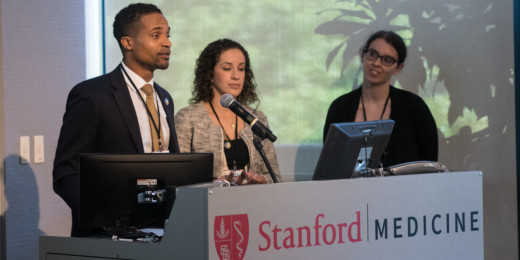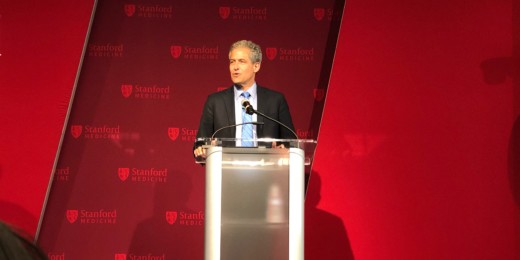The PRIDE Study, now based at Stanford, is the first large, long-term national health study of sex and gender minorities.
Category: Diversity Equity & Inclusion
Gender inequality and rigid norms linked with poor health, global research shows
Rigid gender expectations hurt everyone’s health. A series of papers in the Lancet works to clarify how this happens and spur improvements.
Ramadan: Advising clinicians on safe fasting practices
A Stanford psychiatrist gives practical advice to American clinicians unfamiliar with Ramadan fasting, a common spiritual practice for many Muslims.
How to combat impostor syndrome: Lessons from the Diversity & Inclusion Forum
At the second annual Diversity & Inclusion Forum, attendees brainstormed how to help underrepresented groups feel like they belong in medicine.
Stanford Biodesign tackles gender diversity in health technology innovation
While promoting diversity within its programs, Stanford Biodesign is also working to foster gender diversity in the medtech industry.
A Stanford black, female, gay surgery resident speaks out
Auriel August, a resident in surgery, shares her story about why she decided to become a surgeon and her experience at Stanford.
Hematologist (and a mom, singer, actress and much more) stands up for diversity
Before becoming a hematologist, Tamara Dunn performed “off-off Broadway” and fronted a funk band. Now, she works to foster diverse communities in medicine.
The future of genomics: A podcast featuring Stanford geneticists
Stanford geneticists discuss the future of genomics, including the importance of studying diverse populations for medical research.
Portraits of Stanford Medicine: Three new podcasts on diversity
In the Portraits of Stanford Medicine series, host Paul Costello interviews interesting individuals to showcase the diversity of Stanford Medicine.
A journey to leadership in global health: One woman’s story
Rose Clarke Nanyonga, a nurse and academic leader in Uganda, is one of the women leaders featured in the latest issue of Stanford Medicine magazine.
Genetic counseling in short supply in Mexico
New research has found that many regions of Mexico lack genetic counselors; increased outreach and training could help, Stanford researcher suggests.
“Asian” isn’t specific enough for health data, research suggests
While different Asian groups vary in their risk for heart disease and stroke, all Asian groups are more likely to die early of a stroke than whites.
Promoting health equity at the Dean’s Lecture Series
At a recent Dean's Lecture Series talk on campus, Richard Besser discussed equity in health and his work at the Robert Wood Johnson Foundation.
Opioid epidemic makes eastern inroads and targets African-Americans
A new study has found that opioid-related deaths are highest on the East Coast and opioids are affecting an increasing number of African-Americans.
Why are so few interventional cardiologists women? A new study offers a few clues
Less than 5 percent of interventional cardiologists are women. A study has found that changing hours, male-dominant culture and radiation are deterrents.
A look at how data is democratizing health care
Dean Lloyd Minor discusses findings of Stanford Medicine's recently released Health Trends Report.

















